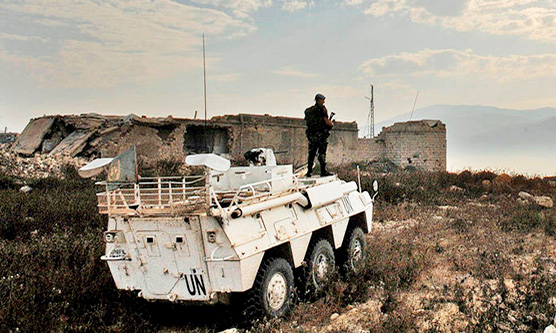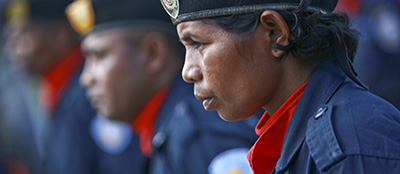Analysing data on the DRC is extremely difficult. Robust, geographically disaggregated data on poverty in DRC is scarce, with most analysis focused on Kinshasa or DRC as a whole. A lot of data has not been processed and data from national and different multilateral agencies can contradict each other. There is a need for greater capacity to identify and understand the nature of ...» more
Conflict
Cash transfers in fragile/conflict-affected environments
There has been a rise in the implementation of cash transfer schemes in fragile and/or post-conflict environments. However, these programmes have often been small in scale compared with commodity distributions. Concerns about implementation in such contexts include insecure delivery and corruption. However, many methods have been used in unstable contexts to safely transfer ...» more
Lessons From The Northern Ireland Peace Process
Key Findings One of the key lessons is that successful conflict resolution requires long-term and unwavering commitment from external actors. Peace processes should be inclusive, comprehensive and involve long- and short-term measures to bolster the commitment of all sides. In NI, various mechanisms (including a degree of textual ambiguity in the GFA) allowed difficult issues ...» more
Community Peacebuilding
Key findings: Community peacebuilding initiatives have been developed in several conflict-affected countries. In fragile and (post)conflict-affected settings, community-led processes to peacebuilding can complement state structures and institutions that are often weak in capacity or political will.Most community peacebuilding initiatives in South Asia are relatively new. As ...» more
Global Drivers of Conflict and Instability
The security-development discourse combines a concern with poverty and economic growth with that of national, regional and global security. It incorporates country-level analyses within a broader framework of transnational issues that impact on conflict dynamics. Issues of poverty and inequality reflect power relations framed by international forces. It is generally thought ...» more
Development Assistance and Social Capital
Most studies on social capital examine the impact of social capital variables on particular development outcomes. There are few studies that provide evidence of the impact of development assistance on social capital, and even less that focus specifically on Sudan and more widely on Central and East Africa. A common theme among the available studies from the regions is the ...» more
New Literature on Conflict in the DRC
This report provides an overview of some of the recent academic, policy and practitioner literature on conflict in the Democratic Republic of Congo (DRC). It focuses on literature produced since mid-2007, when the DFID Strategic Conflict Assessment was published. It is also limited to an assessment of the English language literature. The report highlights a number of key ...» more
Investment Climate Constraints in Fragile and Conflict Affected States
The investment climate can be understood as the set of factors in a given location that shape firms’ incentives and opportunities to invest, grow and create jobs. Some of these factors are costs; others are risks; still others are the competitive forces in the economy. Together, they determine the vibrancy and reach of private sector firms in the economy. A strong investment ...» more
Youth, armed violence and job creation programmes
In response to growing evidence from the social science literature about the links between youth unemployment and armed conflict, donors have increasingly used youth job creation programmes as a tool with which to address armed violence. Many donors now identify addressing youth unemployment as an urgent priority, both in the field of peacebuilding and in efforts to foster ...» more
Conflict Prevention and Local Engagement
Conflict prevention refers to approaches to avoid, minimise, and/or contain potential violent conflicts, and to prevent violent conflict from re-emerging. Engagement with local actors such as civil society, politicians, and community groups can have an important positive impact on conflict prevention, both in situations that have not yet experienced violent conflict and in ...» more
Truth Commissions
Political backing is integral to the success of a truth commission. It is often presumed that national governments that have themselves established truth commissions (either by presidential decree or through legislation) will be supportive of them. This, however, has not always been the case. Where political will is absent, the work and impact of the commission is frequently ...» more
Resource Management and Conflict
There is an extensive literature dedicated to examining the links between the abundance of mineral resources and the incidence and duration of violent conflict. While the ‘resource curse’ thesis has become well-known, claims that an abundance of natural resources increases the likelihood of conflict have been widely disputed.However, beyond the case study literature, there is ...» more
Women’s Education, Conflict and Stability
There are very few studies which provide empirical support to the view that cultures where women are politically, socially and economically repressed are more prone to violent conflict and instability. Furthermore, evidence for a direct relationship between the level of educational attainment amongst women and girls and the degree of fragility or stability is scarce and no ...» more
Gender and Conflict Assessments
Guidance for carrying out gender and conflict assessments is not well-developed; conflict assessments and gender assessments exist as separate types of analytical documents but there are comparatively few examples of gender and conflict assessments, and no established methodologies for doing them. Guidance for undertaking such assessments is drawn from three broad sources: a) ...» more
Transitional Justice and Reconciliation – Zimbabwe
On the 15th of September 2008, ZANU-PF and the two MDC formations signed the Global Political Agreement (GPA), intended to break the deadlock following the March 2008 elections. The agreement is silent on transitional justice, although it does include the provision to “give consideration to the setting up of a mechanism to properly advise on what measures might be necessary ...» more
Impact of Radicalisation/Violent Extremism on Poverty and Development Outcomes
Identifying the impact of violence arising from radicalisation processes and extremism upon poverty and development outcomes is difficult due to the lack of literature which deals with the subject matter specifically. The discussion concerning radicalisation and extremist violence tends to focus on the following areas: 1) Islamic extremism and religious fundamentalism; 2) ...» more
Reintegration Best Practice
The following ‘lessons learned’ in relation to reintegration are repeated across the literature:Reintegration is a long process and programmes must be part of a wider security sector reform strategyReintegration should be nationally led and take a participatory approach, including various stakeholders.Planning for reintegration should begin early.Clear selection criteria should ...» more
Mainstreaming Peace and Conflict Prevention in Zimbabwe
There are few resources detailing how peacebuilding, conflict prevention and conflict resolution have practically been integrated into developing and humanitarian programming in Zimbabwe. However the Zimbabwe literature is in-keeping with the general literature in that it talks about: a) governance; b) education; and c) developing the capacities of staff within these sectors. ...» more
Peacebuilding Commission
The Peacebuilding Commission (PBC) is an intergovernmental advisory body, which formally came into existence in June 2006. The PBC, the Peacebuilding Support Office (PBSO) and the Peacebuilding Fund (PBF) comprise the UN’s new peacebuilding architecture. ‘The PBC (and by extension, the PBF and PBSO) were designed to:bring sustained attention to the pressing needs of countries ...» more
The World Bank in Fragile States
Some of the recurring findings from the literature on the World Bank’s performance in fragile and conflict-affected states include the following:Despite efforts to become more conflict-sensitive, the Bank’s approach to conflict-affected and post-conflict states focuses more on ‘doing things differently’ than ‘doing different things’. This is partly due to a continued reluctance ...» more


